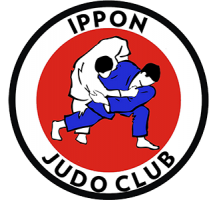Judo was developed in Japan in the year 1882 by Jigoro Kano. Kano was an educator, as well as a practitioner of jujitsu. Sensei Kano took techniques from several martial arts, combining western wrestling and new concepts in physical education and spiritual training. The resulting martial art form that he developed was called Judo, or “The gentle way“.
Judo: A Means of Physical and Mental Exercise
Three purposes were established in Kodokan Judo:
RENSHINDO – Physical Development
SHOBUHO – Proficiency in Contest
SHUSHINHO – Mental Development
In a Judoka’s mind, these are referred to as “Mind, Body, and Spirit“. All three purposes must be kept in balance, as opposed to concentrating only on one aspect. This is one of the ways to achieve complete understanding of Judo.
Seiryoku Zenyo Maximum Efficiency with Minimum Effort.
Maximum Efficient use of Mind and Body is the fundamental principle governing all techniques of Judo. By redirecting your opponent’s balance and movements you may overcome adversaries regardless of the differential in size or strength. Using strategies to bring this maxim to life, a Judo practitioner will learn how to overcome many obstacles that he or she will meet both on and off the Judo mat. Judo is a physical sport consisting of a variety of throwing and grappling techniques. There is no kicking or punching in Judo. A Judo practitioner seeks to overcome his or her opponent by using movements and momentum of the opponents body. For those who choose, the exercise is rigorous and the competition spirited. .
Motivation and Discipline
At Bunasawa-Kai we strive to motivate the Judoka to achieve their potential. Motivation and discipline both come from within. Our mission is to nurture these in each student, and to assist him in bringing it up to the surface.
Motivation via external pressure from coaches, parents and peers outside of the individual is a short-lived phenomenon. When the pressure is removed, motivation drains from the competitor. At Bunasawa-Kai Dojo we strive to capture the child’s own inherent motivation. By having the child do this, we found that the child will perform to the level of expectation. If we expect little from them, we will get little. If we expect our students to perfect a technique which they are taught, they will. If we expect that students conduct themselves in a mature and just manner, they will.
Discipline, like motivation, encompasses internal and external forces which mold a child’s character. Also, like motivation, the external forces of discipline teach a child to respond to pressure. These forces do not instill a sense of honor or righteousness, they merely instill obedience. Self-discipline is the goal of a Judoka. With self-discipline, a Judoka develops character, and becomes the master of his actions.
Confidence flows from a Judoka’s increasing abilities. Discipline comes from his desire to improve. Humility comes from his respect for those who assisted him in this journey.
Judo training is attainable only by dint of endeavor, perserverance, and modesty besides physical exercise. …Kyuzo Mifune
Judo as a Competitive Sport
Judo is a competitive sport. The word Competition is derived from the word Competere, which is Latin for “To Strive Together”. In Judo we strive together for the benefit of all of our members so that all can grow to become successful men and women.
In order to fully realize all of the benefits of Judo competition is encouraged, but it is not required. There is room in Judo for the contribution of all participants, whether they choose to endeavor as an international competitor, or at the local level in their own club.
The objective of a Judo match is to overcome your opponent using a throwing technique, a hold down on the mat, or with submission holds. Well executed techniques are awarded an “Ippon”, or full point, which represents a complete victory. There are other ways in which to score in Judo in order to determine the winner, although the ultimate goal is to achieve an “Ippon”.
By following the teachings of Judo a participant can be expected to bloom into a fit, healthy, and honorable person. The focus of these teachings is to train the mind as well as the body. Tournament success and national titles are beneficial side effects of these teachings, and these benefits are not uncommon for Bunasawa-Kai competitors. Bunasawa-Kai has produced many national champions. Bunasawa-Kai competitors are known as some of the most successful Judo practitioners in the nation in capturing the true spirit of competition. This is expressed in one of the fundamental principles of Judo:
Jita Kyoei
Mutual Welfare and Benefit to All.
